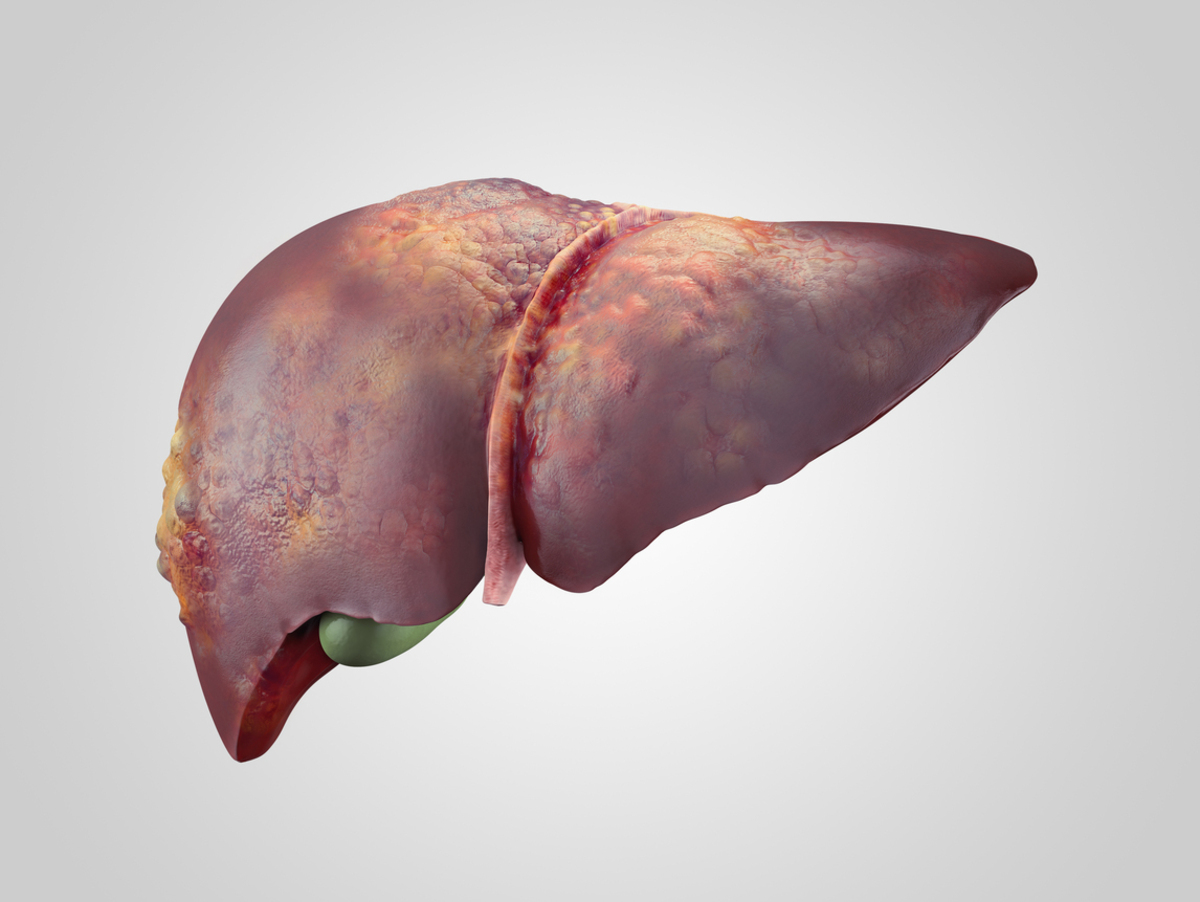Hepatitis C is a viral liver infection transmitted through contact with infected blood — in developed nations, most often through IV drug use, but other ways to get infected would include blood transfusions, organ transplants, scoring a piercing or tattoo from an unregulated and unsanitary studio, and even sharing personal care items like razors and toothbrushes. It can also be passed from mother to child, and sometimes through unsafe sexual intercourse.
Hepatitis C comes in two forms — acute and chronic. A lucky 15 to 25 percent of infected people spontaneously beat the virus, becoming entirely free of it without any treatment. The remaining three quarters or so develop a chronic infection. This, too, can usually be overcome with treatment. After eight to 12 weeks of taking oral antivirals to fight hepatitis C, over 90 percent of patients can successfully clear the virus from their bodies.

Without treatment, however, hepatitis C can easily cause serious, and even deadly, complications. What do you need to know?
Strength in knowledge: Recognizing the symptoms of chronic hepatitis C
Signs that it's time to check in with your doctor right away, in general but particularly when they occur in combination, include:
- Aching joints
- Jaundice — a yellowing of the eyes and skin
- Bleeding and bruising more easily
- Your appetite can desert you and you may spontaneously lose significant amounts of weight
- Feeling exhausted
- Having dark urine
- A bloated abdomen (ascites)
- Abdominal pain
- A fever
Though these symptoms don't only point to hepatitis C, anyone who's experiencing them should definitely see a doctor to figure out what's causing them. Should you indeed have hepatitis C, catching it in a timely manner, as soon as you notice symptoms, will allow you to receive a proper diagnosis and start potentially life-saving treatment.
What complications can untreated chronic hepatitis cause?
The first complication you should be aware of is cirrhosis — a scarring of the liver that gradually assaults your liver function over time. While cirrhosis takes a long time to develop, the CDC estimates that 10 to 20 percent of people living with untreated chronic hepatitis C will develop in within two decades. Some other estimates are even higher.
In addition to the symptoms chronic hepatitis can already cause on its own, itchiness of the skin, nausea, blood capillaries (small red lines sometimes likened to spider webs), muscle cramps, osteoporosis, and vomiting blood can set in. There is no cure for cirrhosis besides a liver transplantation, but medications can help slow or halt its progress.
Cirrhosis greatly increases a person's risk of developing liver cancer, another complication of hepatitis C. Around five percent of patients who have developed cirrhosis as a result of hepatitis C will develop it, and its symptoms don't differ from those we've already looked at. Liver cancer is, sadly, often fatal.
Liver failure is another complication of hepatitis C, and again, about five percent of people with cirrhosis due to chronic hepatitis C will develop this condition, in which the liver stops functioning, almost completely or completely. The impact this has on your body can be seen through symptoms such as fluid build-up in the lower limbs (edema), vomiting blood, bleeding gums and frequent nosebleeds, pale or very dark stool, dark urine, and hair loss. Medications can slow the progress of liver failure and prolong a patient's life, but a liver transplant is the sole cure for this condition.
How many people die from hepatitis-C related causes?
A lot.
The World Health Organization reports that just under 400,000 people died from causes related to chronic hepatitis C in 2016. Because not everyone living with chronic hepatitis C across the globe receives a proper diagnosis, the true number may be much higher. In the US, meanwhile, just over 17,000 people died from hepatitis-C-related causes, as reported on their death certificates. Though these numbers apply to just one year respectively, the situation is similar all other years.
For most of the people who succumbed to causes closely related to chronic hepatitis C infections, liver cancer or cirrhosis proved to be their ultimate nemeses.
Hepatitis C prevention should your goal, but timely diagnosis and treatment are the next best thing
That means the ball is in your court. By avoiding activities that can put you in harm's way, you can defend yourself and minimize your risk of catching hepatitis C:
- Don't inject drugs — but if you do so anyway, never share needles and always use sterilized and new syringes and needles.
- Don't share personal care items like razors and toothbrushes — especially with someone you know to be infected.
- Practice safe sex every time. If you are in a monogamous relationship, that can mean both partners get tested for STDs of all kinds. Wait for your doctor's green card before intimacy without a condom.
- If you're a healthcare worker, watch out for needlestick injuries.
- Only get tattooed and pierced by safe studios. Only attend and receive blood transfusions from clinics that are licensed and properly regulated.
If you believe you may have been exposed to hepatitis C, make an appointment with your doctor right away. If you notice symptoms that could indicate a liver problem, make an appointment with your doctor right away. Get tested. Acute hepatitis C usually isn't treated in any way, but rather monitored to see if it will clear up, but chronic hepatitis needs to be treated aggressively. Timely diagnosis and treatment can save your life.

